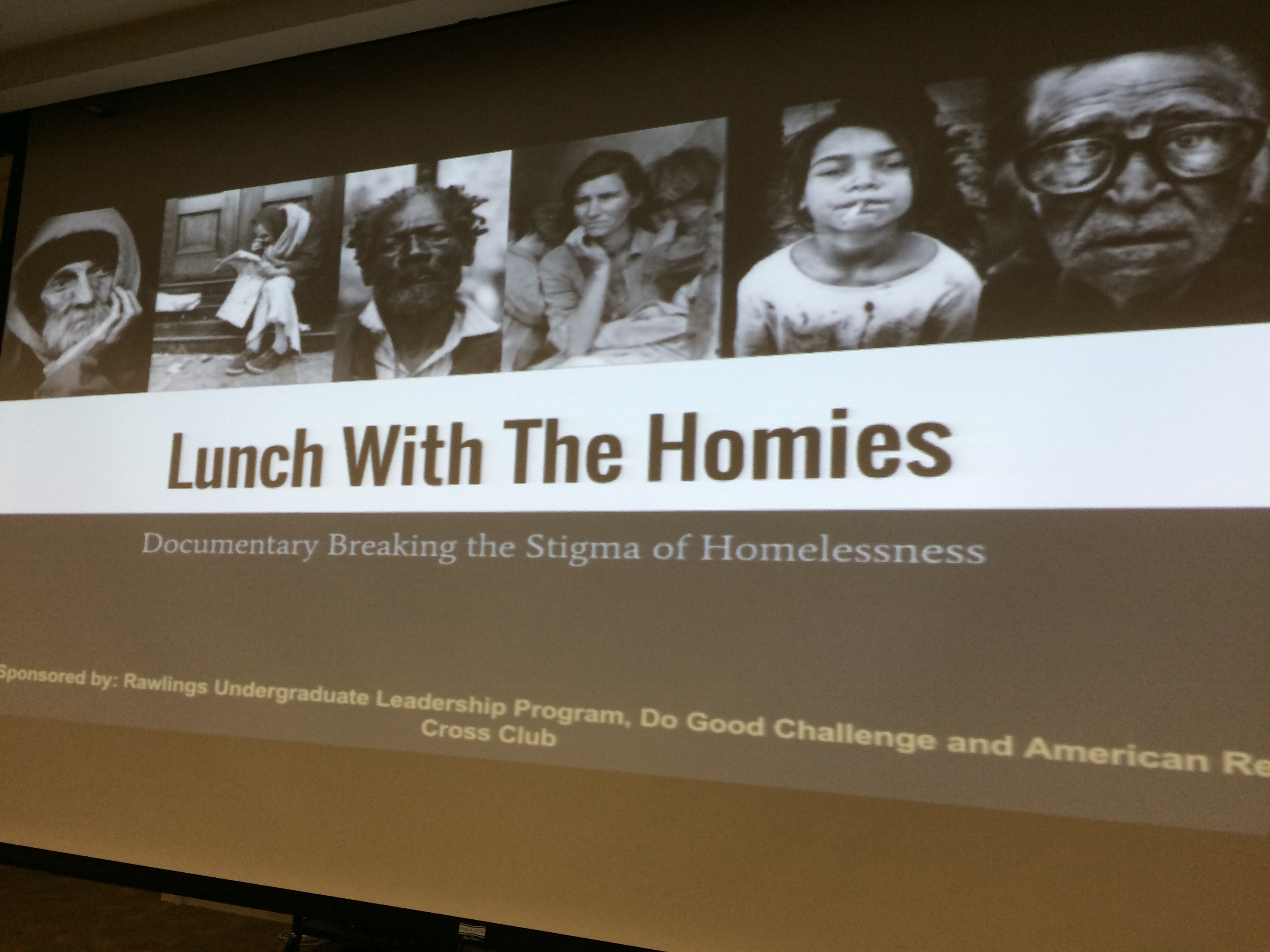By Gillian Vesely
For The Diamondback
Steve Thomas, an Air Force veteran and advocate for ending homelessness, became homeless in 2005 after struggling with a drug and alcohol addiction.
Since then, he has been clean and sober for 10 years, and spoke Monday with another advocate to educate about 40 people in Stamp Student Union’s Grand Ballroom Lounge about the pervasive nature of homelessness.
“Homelessness can happen to anyone,” he said. “No one is exempt. A lot of times, homelessness can be just one bad decision away.”
The discussion was part of an event that also featured the premiere screening of “Lunch With the Homies,” a documentary by three students in the University of Maryland’s Rawlings Undergraduate Leadership Fellows Program about homelessness in the Washington area.
Eden Daniel, one of the students who helped make the documentary, said inspiration for it was rooted in the desire to raise awareness about homelessness.
“It’s really something that isn’t talked about much,” the senior theatre major said. “We really just wanted to hear those stories and find out how they got there.”
The video, which the students started filming in February, featured various interviews with homeless people and one with Delegate Mary Washington (District 43).
Washington commented on some of the factors behind homelessness and offered suggestions about potential ways to combat it, such as raising the minimum wage.
Thomas was also featured in the video, but Daniel said it was his in-person appearance that had the biggest impact on the audience.
“It’s one thing to see it on a screen, but then when you actually have in front of you people who have experienced [homelessness] and come out of it alive … it’s huge,” Daniel said. “Then it really becomes real to you and you understand it’s not something that is so far from you.”
Shanice Gentle, a senior hearing and speech sciences major, attended the panel and movie screening to learn more about the issue of homelessness.
“There’s a lot of social issues out there, and I feel like there’s not enough education about it,” she said. “Any time there’s an event on campus, I try to make sure that I at least stick my head in and find out what’s going on around us.”
Carolyn Darley, another advocate against homelessness, explained how she became homeless after diagnoses of fibromyalgia and depression and a separation from her husband caused her to have a nervous breakdown. She brought up the idea of making changes in life, and said students shouldn’t be discouraged to do so because of their age.
“I don’t ever want you to think that you have to wait to get a certain type of job … to do any good,” she said. “Your ideas are good now. Believe that you can … be of some help to your society.”
Darley said she was eager to hear ideas from audience members, and encouraged them after the panel to share their suggestions about how to reduce homelessness. Sometimes, she said, doing something as simple as saying hello to homeless people could make a big difference in their life, as it helps make them feel human again.
“I used to believe that the opposite of poverty was wealth,” Darley said. “But after I’ve gone through this, I’ve now found the opposite of poverty is justice.”



